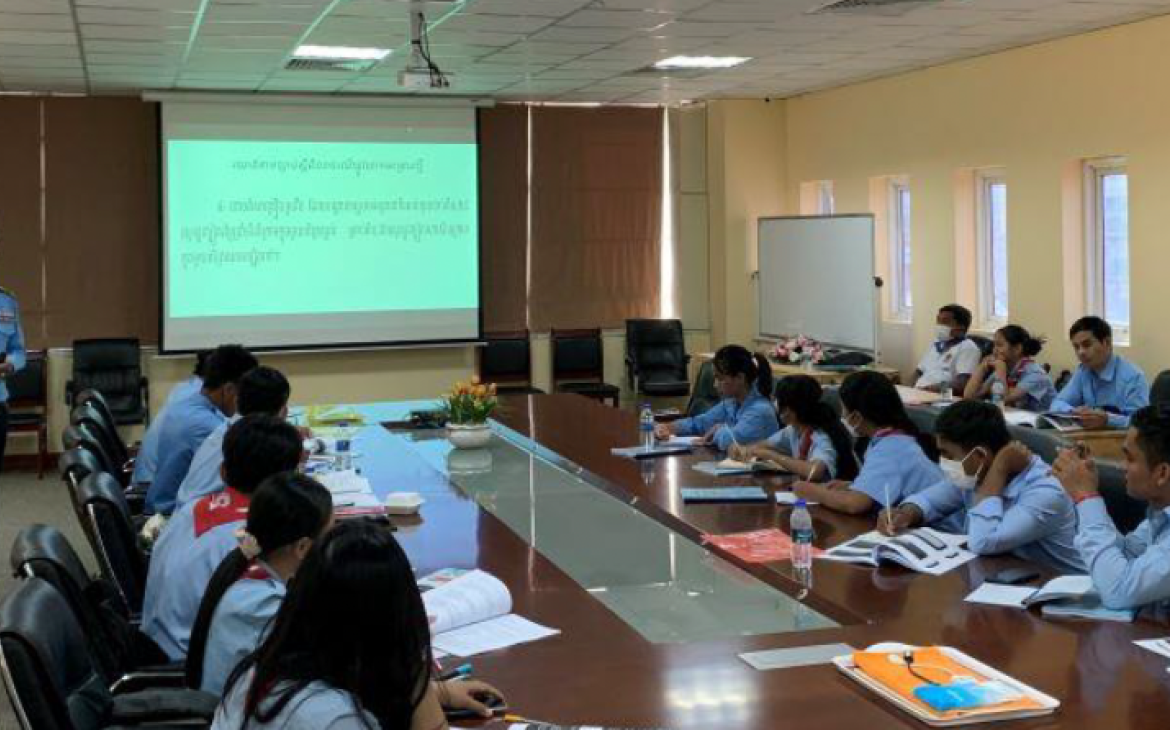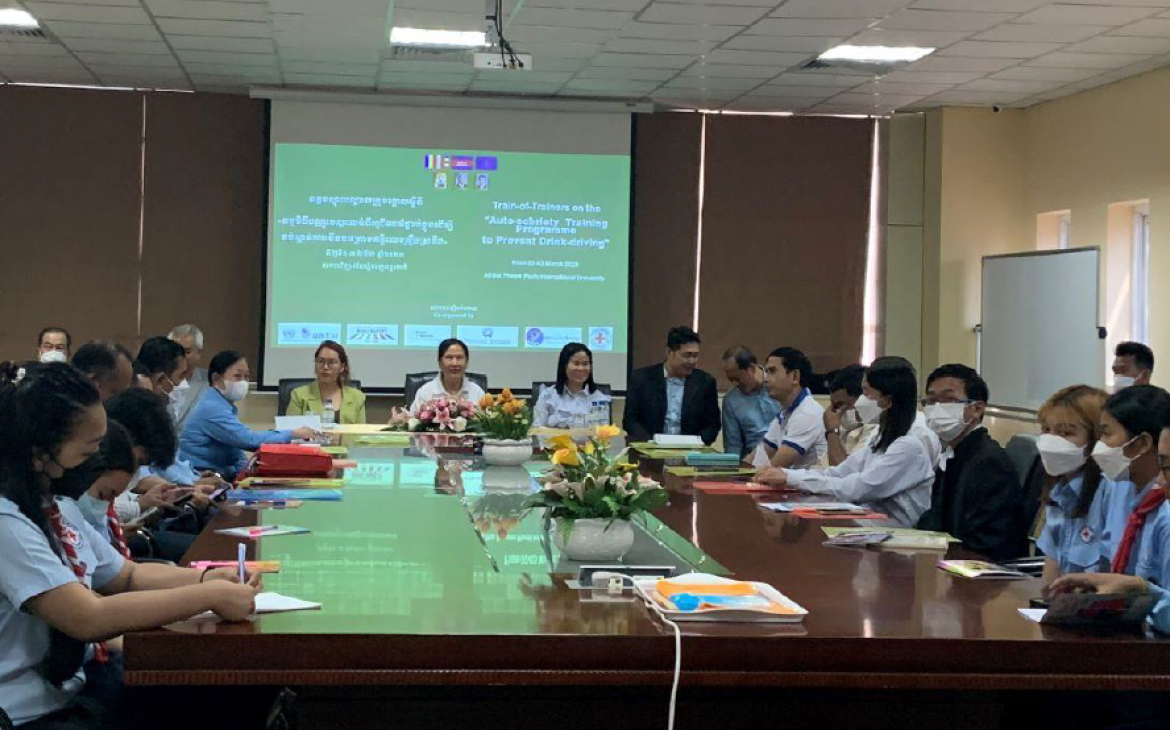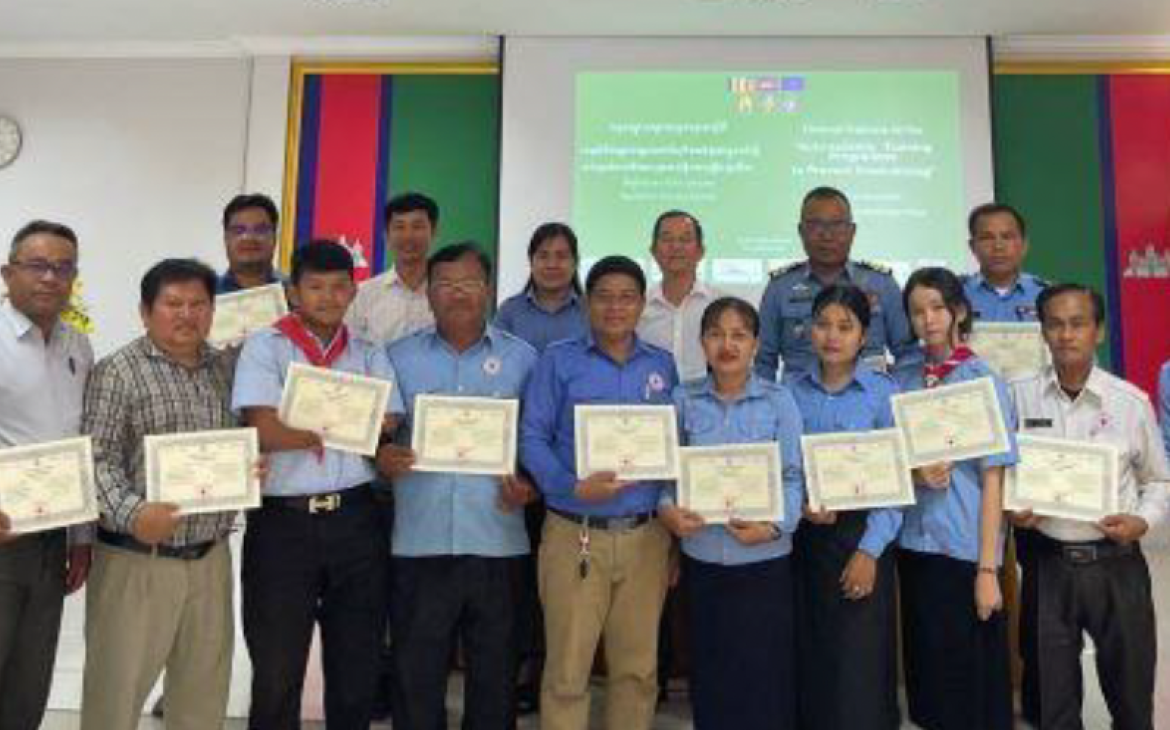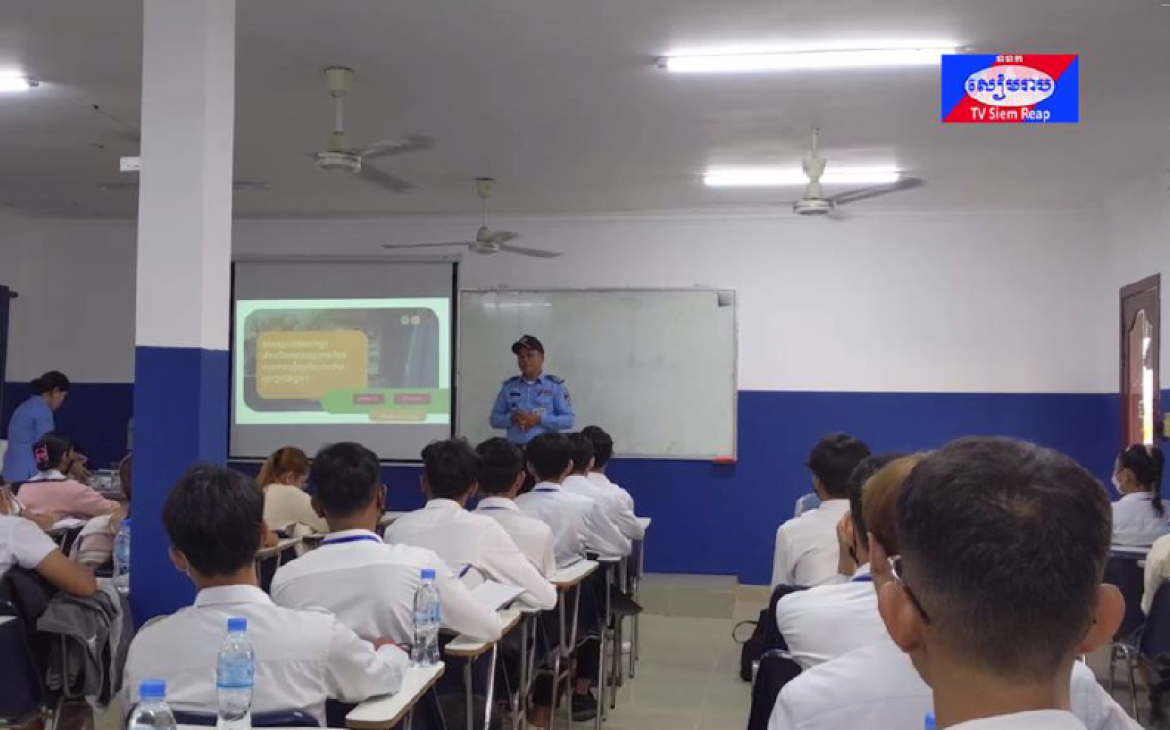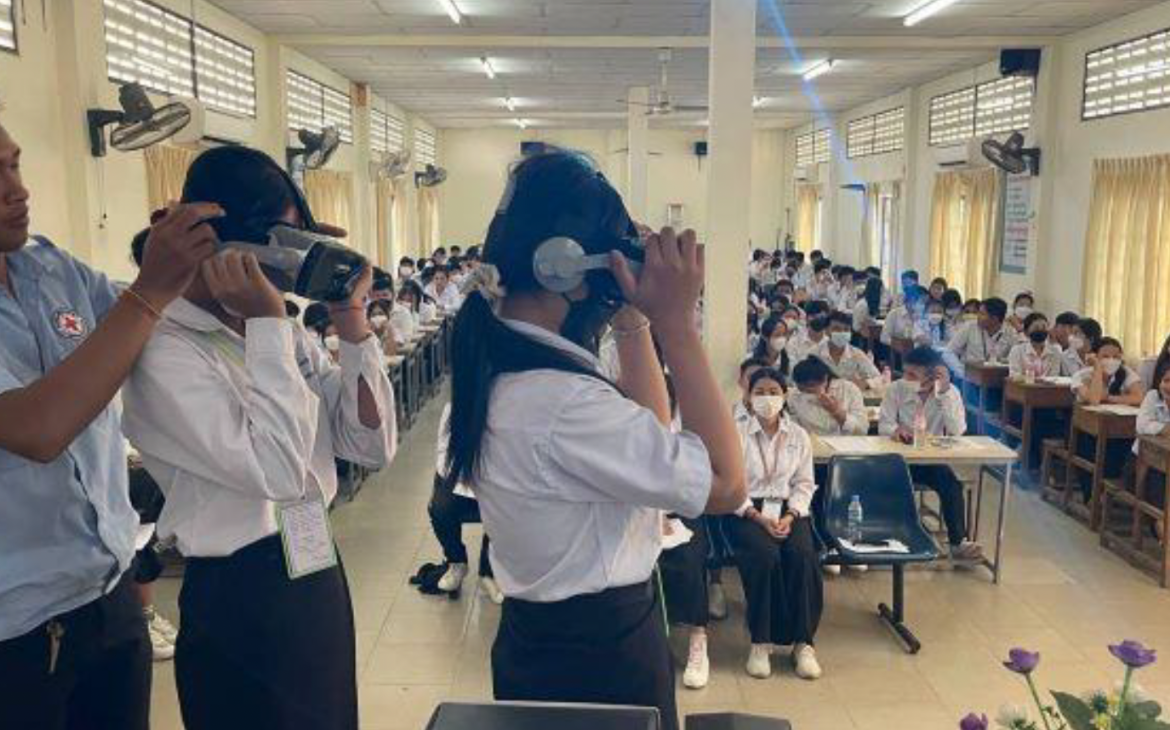31 May 2023, Phnom Penh, Cambodia –The Autosobriety Training Programme to Prevent Drink-Driving in Cambodia concluded its first year of implementation with a closing ceremony today. UNITAR, in partnership with the Cambodia Safety Solution Organization (CAMSAFE), the Ministry of Public Works and Transport from the Kingdom of Cambodia, the National Road Safety Committee, the Cambodian Red Cross, and Pernod Ricard celebrated the accomplishments of the Programme, while underscoring the significance of Autosobriety in raising awareness about drink-driving and contributing to prevent road traffic crashes and injuries related to alcohol.
The ceremony started with opening remarks from Mr Boran Sattya, Deputy Director of the National Road Safety Committee (NRSC), who reflected on the road safety and drink-driving status over the past decade in Cambodia. The Deputy Director also emphasized the crucial role of the Cambodia National Plan for the Decade of Action for Road Safety 2021-2030, which aims to further reduce road crashes and fatalities involving alcohol through public education and achieve UN Global Road Safety Performance target 9: halve the number of road traffic injuries and fatalities related to drivers using alcohol, and/or achieve a reduction in those related to other psychoactive substances.
Since the launch of Autosobriety in Cambodia on March 2nd and 3rd 2023, a significant impact has been made, with a reach of 1,881 beneficiaries through a variety of channels. These channels included 3 Training of Trainers (ToTs) workshops, and 20 training workshops, in which the educational tools of the Programme were utilized.
The Training of Trainers (ToTs) workshops took place in three provinces (Phnom Penh, Sihanoukville, and Siem Reap) in the country to equip individuals to educate high school and university students, as well as factory workers, employees, transport, and business services companies, factories, and enterprises on road safety, with a specific emphasis on the prevention of drinking and driving within their respective provinces.
The inaugural ToT workshop was held in Phnom Penh province, where 22 individuals received training. These trainers later organized 10 workshops, teaching their newly acquired knowledge to reach and empower 961 new beneficiaries. The second and third ToT took place in Sihanoukville and Siem Reap provinces, respectively, equipping 20 and 22 individuals who, in turn, benefited 403 and 317 beneficiaries. A total of 1,681 direct beneficiaries were reached through those ToTs and training workshops and 144,251 indirect beneficiaries were reached through social media platforms and newspapers.
To evaluate the impact of the ToTs workshops and subsequent training sessions, pre and post-test surveys were conducted to assess participants' knowledge of the effects of alcohol on driving, drink-driving prevention, and the road safety current situation in the country. The survey results revealed a notable enhancement in knowledge among the participants. The three ToTs workshops displayed a substantial 61% increase in knowledge, while the 20 training workshops demonstrated an even higher increase of 68% in knowledge. These findings underscore the effectiveness of the training in equipping individuals to educate others about responsible driving practices.
The implementation of Autosobriety in Cambodia has made a significant contribution by equipping individuals with crucial knowledge and skills to understand and prevent the risks of drink-driving. Through the Training of Trainers (ToTs) workshops and subsequent training sessions in universities and factories, the program effectively reached a diverse range of beneficiaries, increasing awareness about the dangers associated with drink-driving.
The conclusion drawn from the program's implementation reflects the urgent need to prioritize education on the risks of drink-driving and its prevention. This includes emphasizing education and training on the importance of responsible behaviours and making informed choices when driving, particularly among young drivers. With comprehensive education initiatives, Cambodia can further enhance road safety and reduce the incidence of drink-driving.



